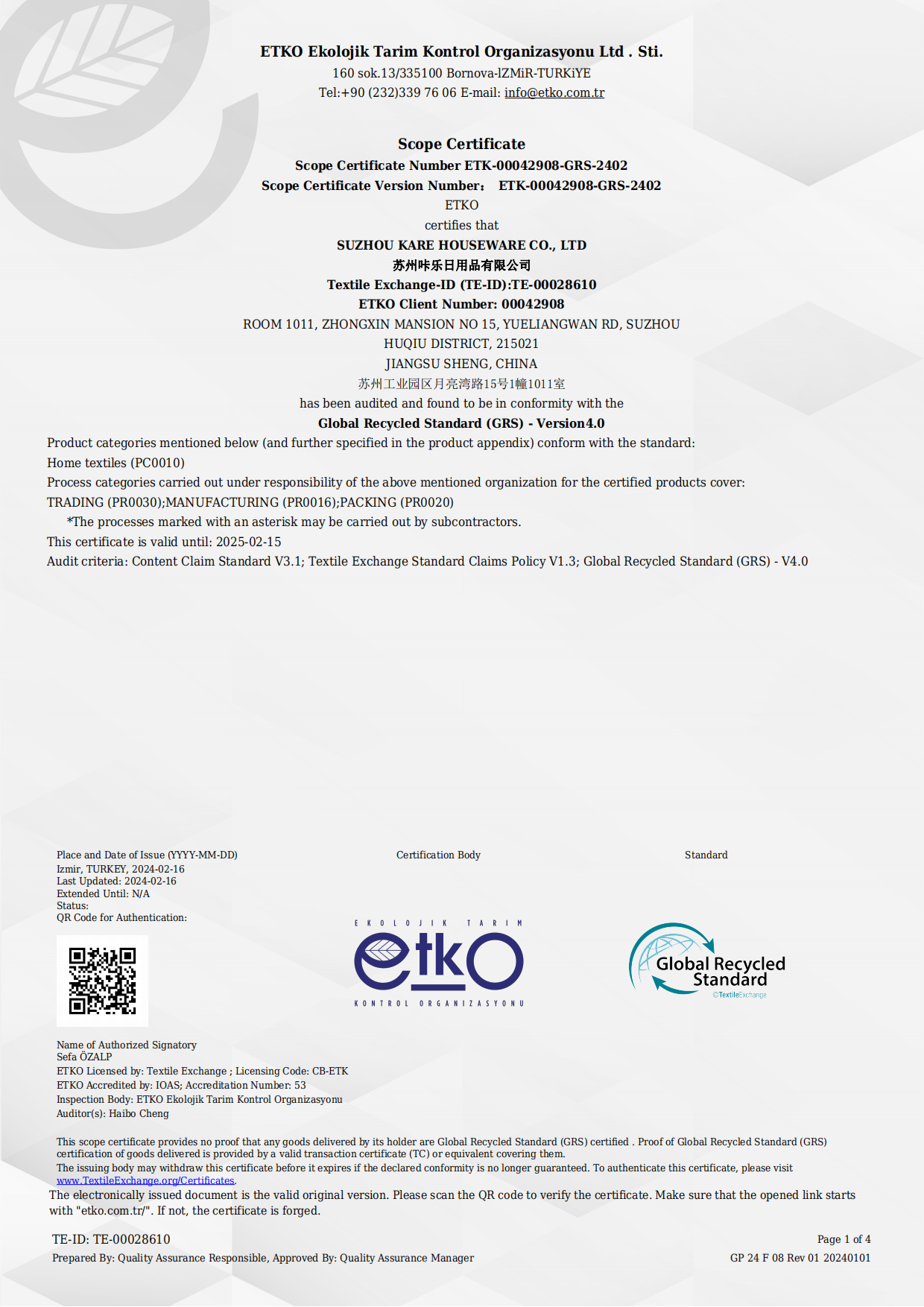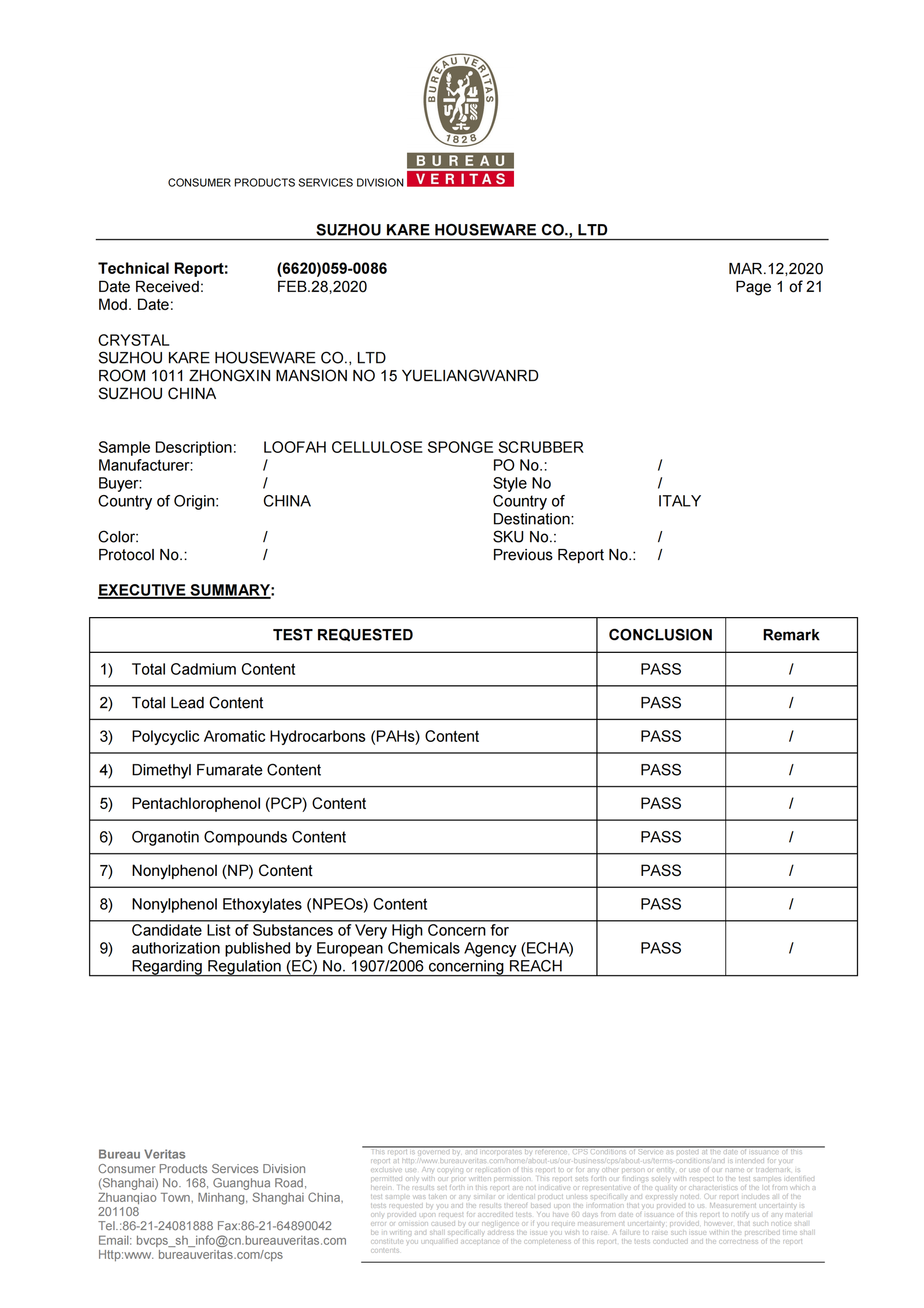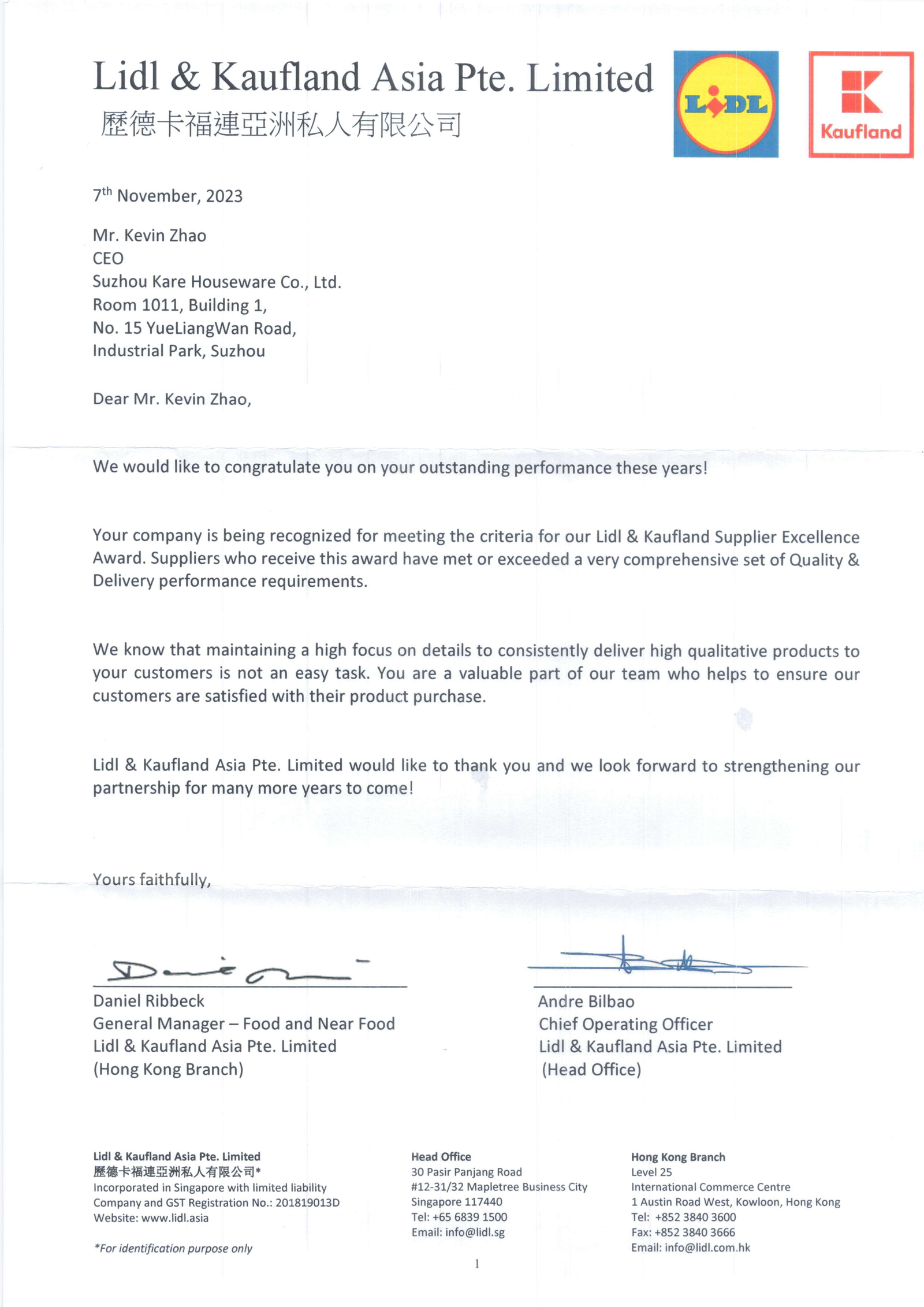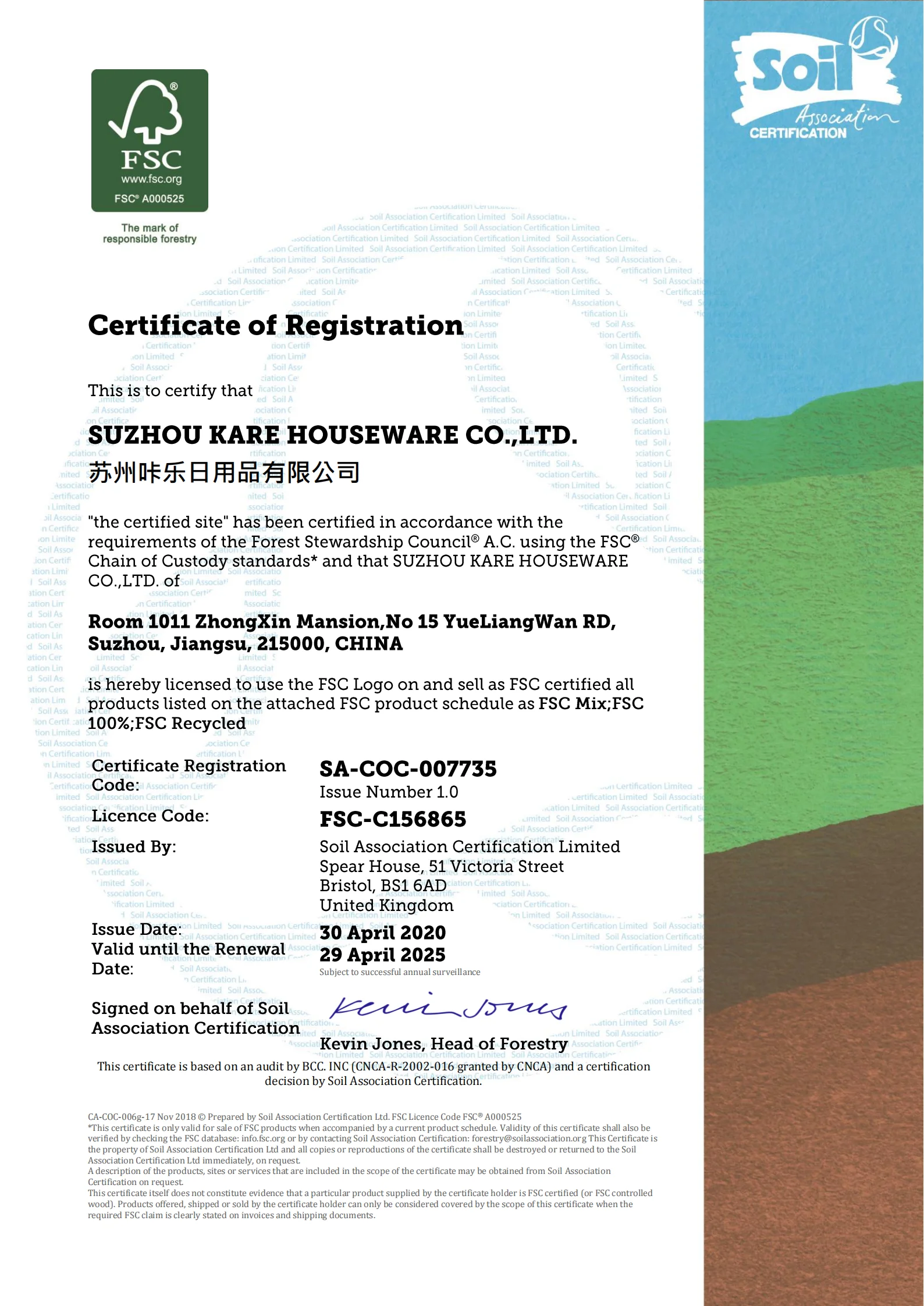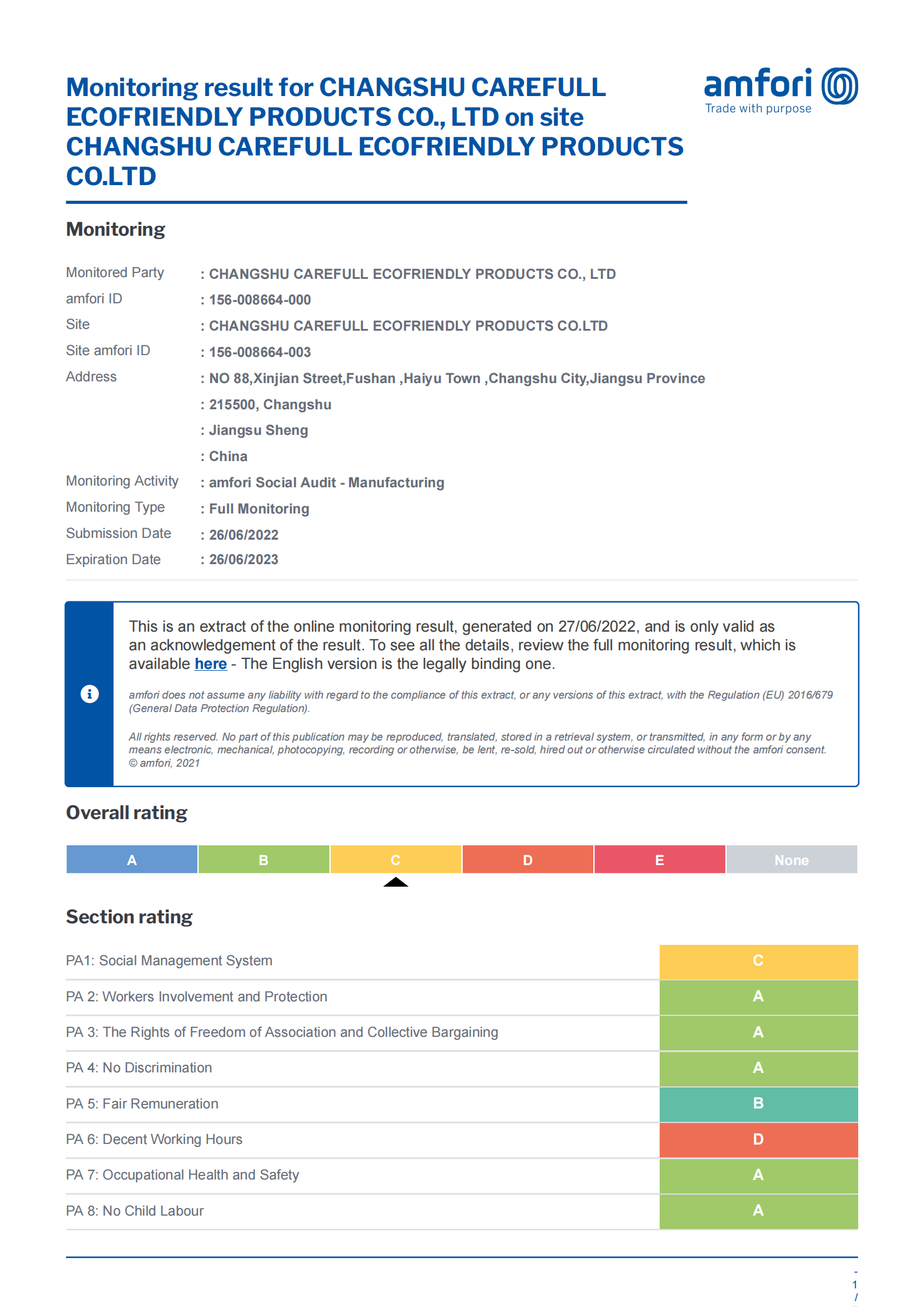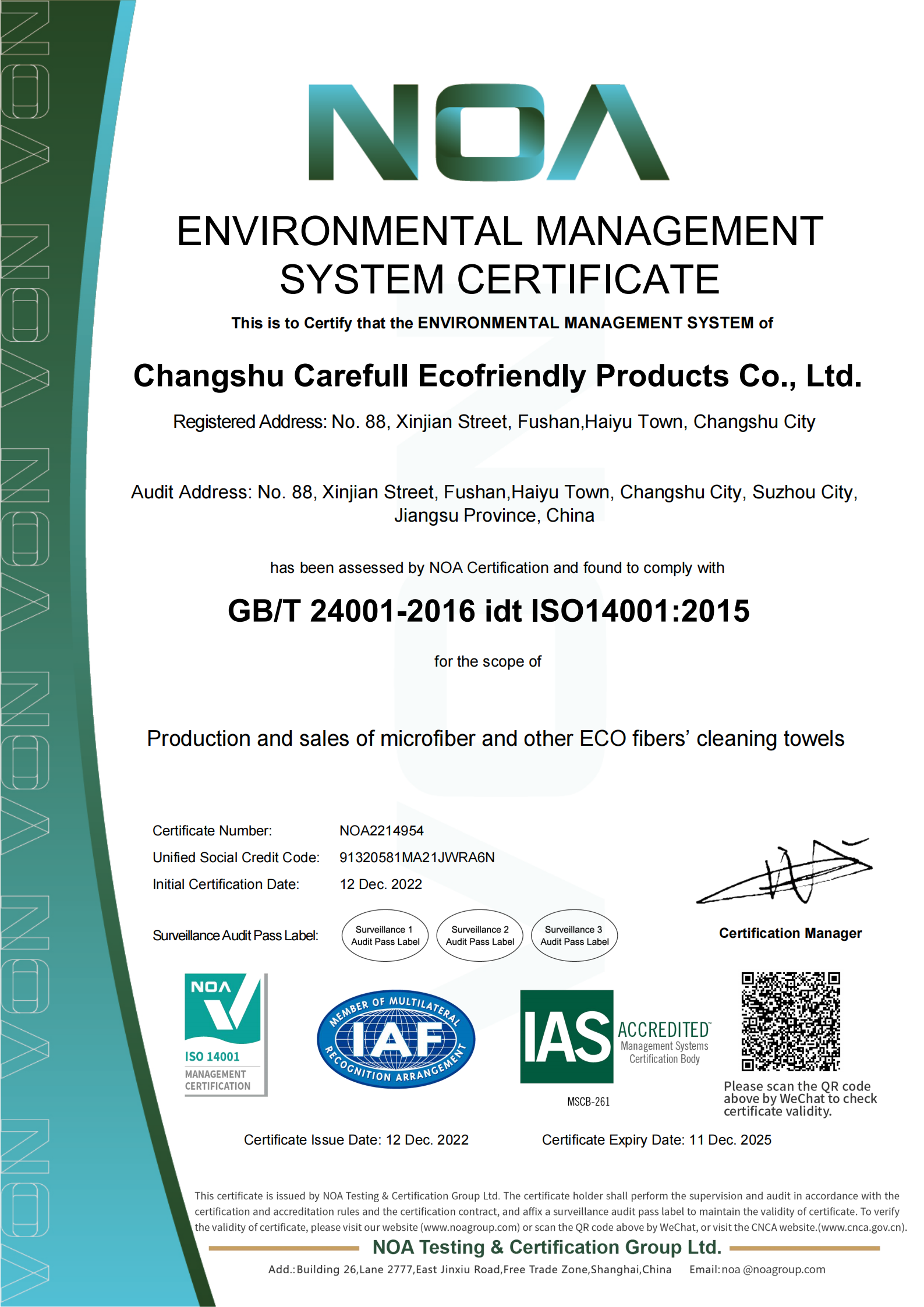Certificates
OUR CERTIFICATED
Certifications and licenses
GRS Certification Overview
GRS (Global Recycled Standard) is an international, voluntary, full-product standard that sets requirements for third-party certification of recycled content, chain of custody, social and environmental practices, and chemical restrictions. The standard is designed to increase the use of recycled materials in products while ensuring that the materials are processed in a sustainable manner. GRS covers the entire supply chain, from the recycling process to the final product, ensuring transparency, traceability, and ethical practices. Products certified under GRS are verified for their recycled content and adherence to strict social and environmental criteria, making it a key certification for brands and manufacturers committed to sustainability and reducing their environmental impact.
Reach Detection Overview
REACH (Registration, Evaluation, Authorization, and Restriction of Chemicals) is a European Union regulation that aims to protect human health and the environment from the risks posed by chemicals. For eco-friendly sponges, REACH testing ensures that the materials used do not contain harmful substances above specified limits. This testing process involves a thorough assessment of the sponge’s chemical composition to verify that it complies with the strict safety and environmental standards set by the EU. Products that pass REACH testing demonstrate a commitment to safety and sustainability, providing consumers with confidence that the sponges are free from hazardous chemicals and are environmentally responsible.
Amfori Quality Management Capability Audit
The amfori Quality Management Capability Audit is a comprehensive evaluation process designed to assess and improve a company’s quality management practices within its supply chain. This audit focuses on ensuring that suppliers and manufacturers meet high standards of product quality, consistency, and compliance with international regulations. The audit covers various aspects, including production processes, quality control systems, documentation, and management practices. By participating in the amfori Quality Management Capability Audit, companies can enhance their operational efficiency, reduce risks, and ensure the delivery of high-quality products to their customers. This audit is part of amfori’s broader mission to promote sustainable and ethical business practices across global supply chains.
Lidl & Kaufland Asia Pte. Limited Award
Lidl & Kaufland Asia Pte. Limited is the Asian sourcing arm for Lidl and Kaufland, two major retail brands under the Schwarz Group, one of the largest retail groups globally. Based in Singapore, Lidl & Kaufland Asia oversees the sourcing, quality control, compliance, and product development for non-food products destined for Lidl and Kaufland stores worldwide. The company operates across multiple countries in Asia, managing a robust supplier network and ensuring that all products meet the high standards of quality, sustainability, and social responsibility expected by their global customers
FSC Certification Overview
FSC (Forest Stewardship Council) is a global certification system that promotes environmentally responsible, socially beneficial, and economically viable management of the world’s forests. It sets standards for responsible forest management, offering a certification system for forest managers and producers. Products with the FSC label ensure consumers that the wood, paper, or other forest products have been sourced from well-managed forests with consideration for people, wildlife, and the environment. FSC certification is widely recognized globally, playing a crucial role in sustainable forestry practices.
OEKO-TEX Overview
OEKO-TEX is an international certification system for textiles, testing for harmful substances. It ensures that textile products are free from harmful levels of more than 100 substances deemed to be unhealthy. This includes a range of products from raw materials to finished goods. OEKO-TEX certification is recognized globally and is considered an important standard for consumer safety in textiles. It promotes responsible and sustainable textile production by ensuring products are safe for human use and environmentally friendly.
Amfori BSCI Overview
amfori BSCI (Business Social Compliance Initiative) is an industry-driven movement that aims to improve global supply chains’ social performance. It provides a unified code of conduct and a platform for companies to assess and improve social compliance in their supply chains. The initiative focuses on critical areas such as labor rights, health and safety, and environmental standards, promoting fair and safe working conditions worldwide. By joining amfori BSCI, companies commit to a process of continuous improvement in their factories and farms, demonstrating their dedication to ethical business practices and corporate social responsibility.
BRCGS Overview
BRCGS (British Retail Consortium Global Standards) is a leading global brand and consumer protection organization, known for its rigorous safety and quality certification programs. The standards cover a wide range of industries, including food safety, packaging, storage and distribution, and retail. BRCGS sets the benchmark for best practices in manufacturing, ensuring product integrity, safety, and quality. Companies certified by BRCGS are recognized for their commitment to producing safe, high-quality products, which in turn builds consumer trust and confidence. The BRCGS certification process encourages transparency, efficiency, and continual improvement within the supply chain, making it a key standard for retailers and manufacturers worldwide.
ISO14001 Overview
ISO 14001 is an international standard that specifies requirements for an effective environmental management system (EMS). It provides a framework that an organization can follow, rather than establishing environmental performance requirements. The standard is designed to help organizations improve their environmental performance through more efficient use of resources and reduction of waste, gaining a competitive advantage and the trust of stakeholders. ISO 14001 is applicable to any organization, regardless of size, type, and nature, and applies to the environmental aspects of its activities, products, and services that the organization determines it can either control or influence considering a life cycle perspective. Compliance with this standard demonstrates an organization’s commitment to environmental stewardship and sustainable development.

